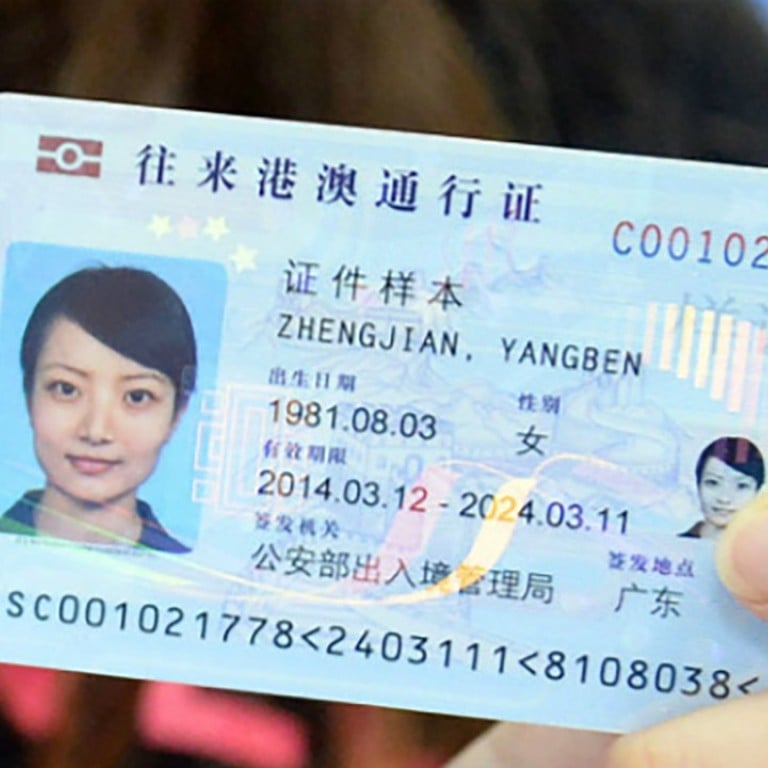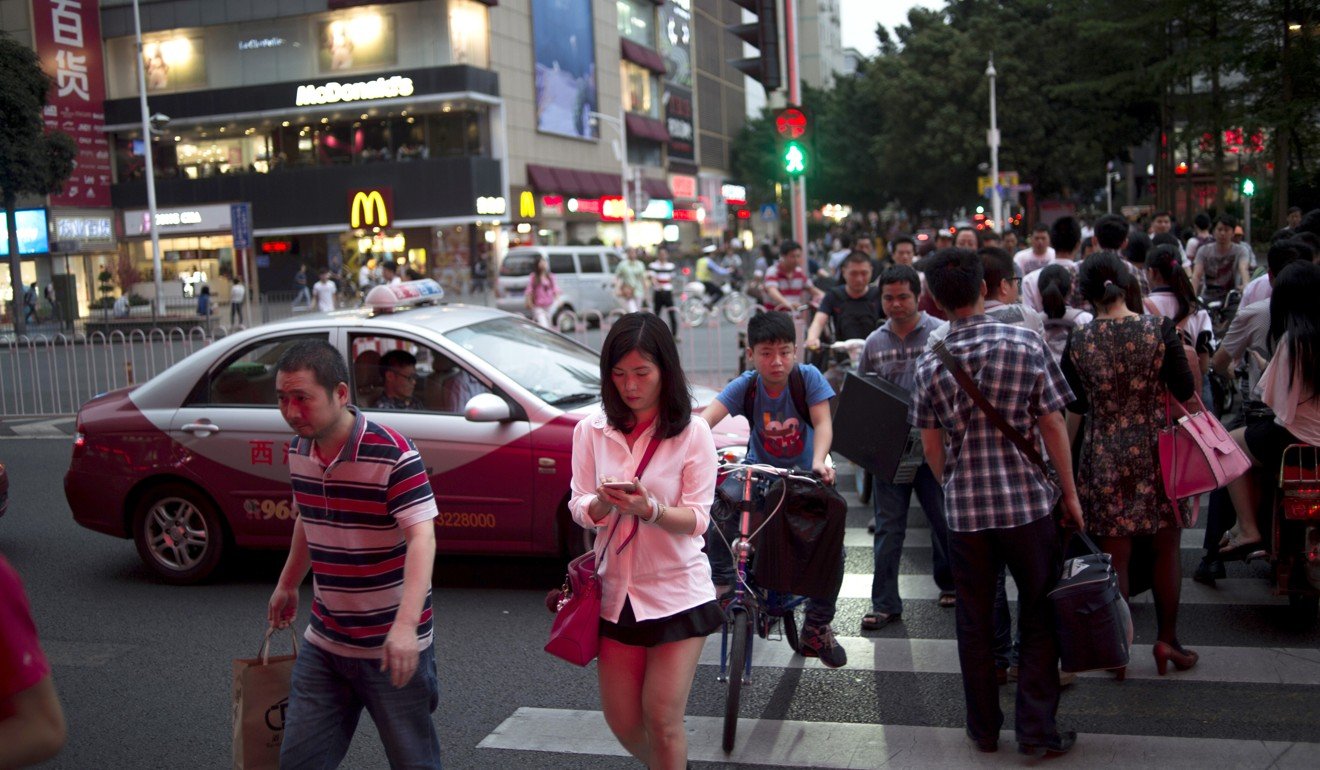
New mainland China ID card for Hong Kong, Macau and Taiwan residents will be revoked if holders pose threat to country, documents reveal
State Council, China’s cabinet, publicises document detailing application arrangements for new smart cards
Hongkongers working and living in mainland China will have their identity cards revoked there if they pose a threat to national sovereignty and security, the Chinese government revealed on Sunday.
The State Council, China’s cabinet, publicised a document on Sunday detailing the application arrangements for the smart cards.

Apart from revealing that each “residence permit” would be valid for five years, the document listed the criteria under which a card could be revoked.
Andy Chan rebuked after asking Trump to have China kicked out of WTO
“The residence permit should be declared by the issuing authority as invalid [if the cardholder] lost their resident status in Hong Kong, Macau or Taiwan … [and if he or she] could harm the nation’s sovereignty, security, reputation and interests,” it said.
Lawmaker James To Kun-sun, the Democratic Party’s spokesman on security issues, said it could be problematic to revoke a residence permit if the holder had not broken any law. He used the example of Hong Kong residents who can gain permanent residency and the right of abode if they lived in the city for seven years.
“If a non-permanent Hong Kong resident broke the law, he might not be able to enjoy the right of abode after staying here for seven years, but can we deny someone the same right if he jeopardised Hong Kong’s reputation?” he asked.

“The article is in line with mainland laws … This residence permit will be issued to ordinary people living and working on the mainland, I think they understand the laws and would not touch on the bottom line [of national security],” Wong added.
Pan-democrats should cut ties with ‘stupid’ separatists, say lawyers
Professor Wong Yuk-shan, deputy convenor of the city’s 36-member delegation to the NPC, said the central government was only making its requirements clear.
“The Chinese constitution and other laws would not allow anyone to threaten the nation’s security. It is a serious matter … If a person is breaking the law in this respect, it is sensible for the issuing authority to revoke the permit,” Wong said.

According to the official document, cardholders could also lose their residence permit if they were found to have used fake documents in the application process, or if their travel documents were revoked.
The new ID card is not a travel document and Hongkongers will have to use their home return permit, which has an eight-digit code, to cross the border.
Application forms for a home return permit do not state under what circumstances authorities will declare that document invalid.
However, some of Hong Kong’s opposition pan-democrats considered hostile to Beijing were previously denied entry into the mainland, and were only able to get a home return permit since late year – after the issue came up in a meeting between China’s former No 3 official Zhang Dejiang and four pan-democrats in the city that year.

